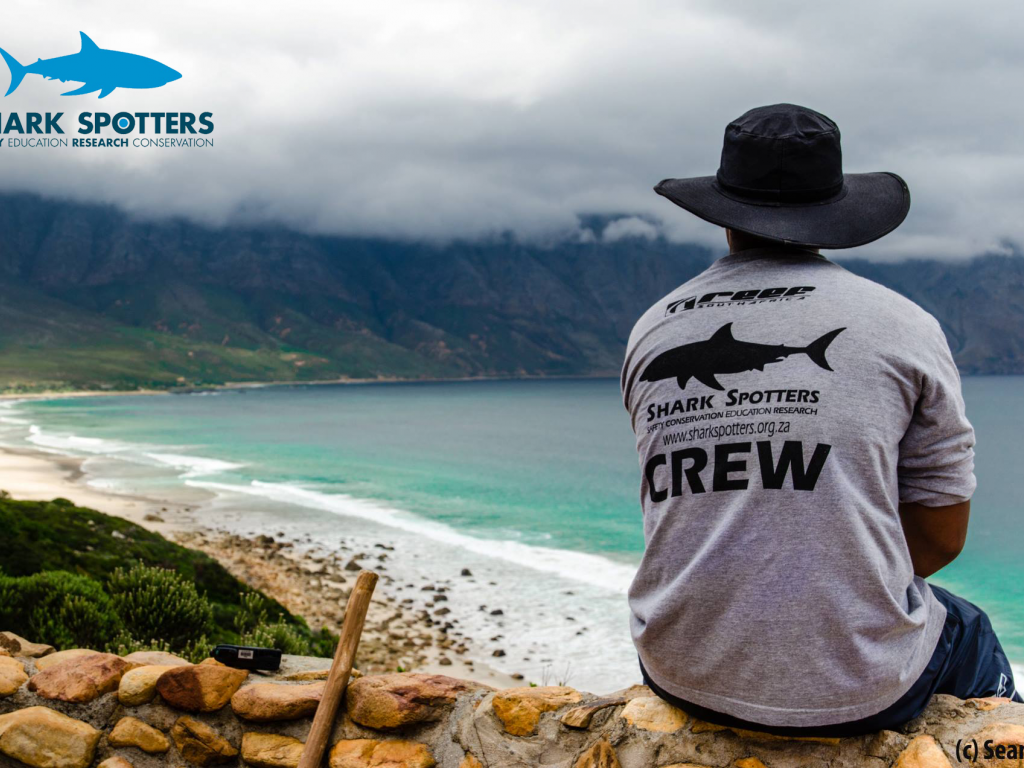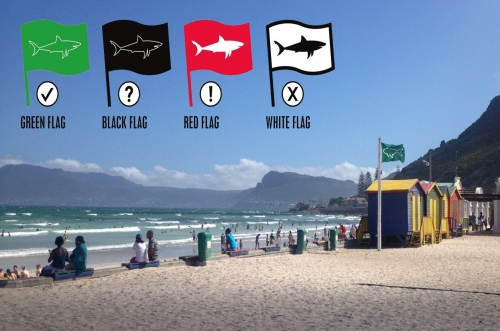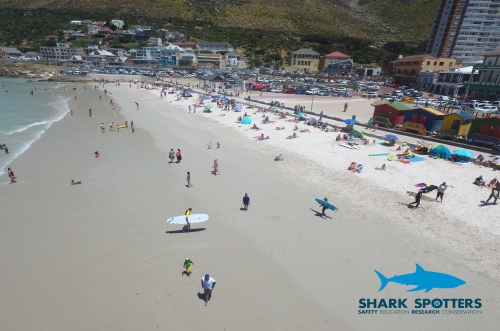Shark Spotters successfully balancing water user safety with shark conservation


The City of Cape Town boasts one of the world’s most progressive programmes for reducing the chances of a negative interaction between white sharks and recreational water users – Shark Spotters. The goal of the programme is to visually detect sharks swimming along the inshore region of popular beaches and use a system of auditory and visual signals to encourage water users to get out of the water when a shark is considered too close. But does it work?
Yes, suggests the findings of a new study by UCT PhD student, Tamlyn Engelbrecht (PLoS ONE). The programme employs thirty spotters operating on eight beaches in Cape Town, made possible by funding from the City of Cape Town and the Save our Seas Foundation."In 2010, the Save our Seas Foundation saw tremendous potential in the Shark Spotter's ability to find non-lethal of invasive ways of managing the human-shark coexistence in Cape Town - an area notorious for its great white sharks", says Save Our Seas CEO, Michael Scholl. "We're trhilled to continue our long-term support and collaboration with this innovative community drive project, which is raising awareness for shark conservation and promoting beach safety".
Spatial overlap between white sharks and recreational water users, and consequently the risk of a shark encounter, is significantly lowered by the efforts of shark spotters, and further, water users (swimmers, surfers and kayakers) adjust their behaviour in response to rare (on average only one every two years) negative incidents between sharks and people.

Visual warning system of colour flags used by the Shark Spotters programme, which has been operating at beaches in False Bay since the mid-2000s (Image credit: Tamlyn Engelbrecht UCT/Shark Spotters)
“This is an important finding”, says Professor O’Riain, Director of the Institute for Communities and Wildlife in Africa (iCWild), “as the program has been in operation for over a decade but its efficacy had yet to be measured”.
Sarah Waries, CEO of Shark Spotters and executive committee member, Dr Alison Kock, are both greatly encouraged by the findings. The study shows that following a shark sighting using the white flag and siren, water users respond as expected and leave the water, but encouragingly and contrary to popular belief, within the following hour the numbers of water users are almost the same as before the sighting, indicating that the warnings to do not scare people away from the beach. However, the study indicates that rare fatal shark incidents reduce the number of water users for at least three months, thereby adversely impacting the local economy around False Bay. It is therefore essential to try and prevent these incidents by reducing spatial overlap between sharks and people. “We are delighted that the results confirm that the program is achieving its primary goal, without negatively affecting the numbers of water users through issuing shark warnings”, said Dr Kock.

Recreational water use at Muizenberg beach is a popular year-round activity for tourists and locals alike. (Image credit: Shark Spotters)
The study also reveals that white sharks and water users have similar patterns of presence along the beaches in False Bay, with both preferring the warmer summer months and the middle of the day. “Rather than killing the sharks or excluding them from all beach habitats, the water users of Cape Town are asked to work together with the Shark Spotters and their non-invasive warning system to continue the positive results seen to date for the benefit of both people and sharks”, says Gregg Oelofse (Manager of the City of Cape Town Coastal Management Department).
“The citizens of Cape Town are playing their part in ensuring that these ecologically important, threatened species retain access to their natural habitat”, says Sarah Waries. Cape Town has leveraged one natural asset, the mountains, to allow spotters to keep another asset, white sharks, safe from lethal alternatives. “There are benefits to the ecology, tourism and the economy”, says O’Riain, “and this is the kind of approach to our challenges that we need to celebrate”.
The Shark Spotters program is an example of a proactive, environmentally responsible and sustainable shark safety program that effectively increases safety at beaches where there is potential for people and sharks to come into contact. The conservation conflict around how this overlap in water use by people and sharks is managed is one of the core research themes of the Institute for Communities and Wildlife in Africa (iCWild).
The full article is available here. More information about Shark Spotters can be found at www.sharkspotters.org.za, or by contacting Sarah Waries at info@sharkspotters.org.za. For more information on the work iCWild is doing, go to www.icwild.uct.ac.za or email icwild@uct.ac.za.
